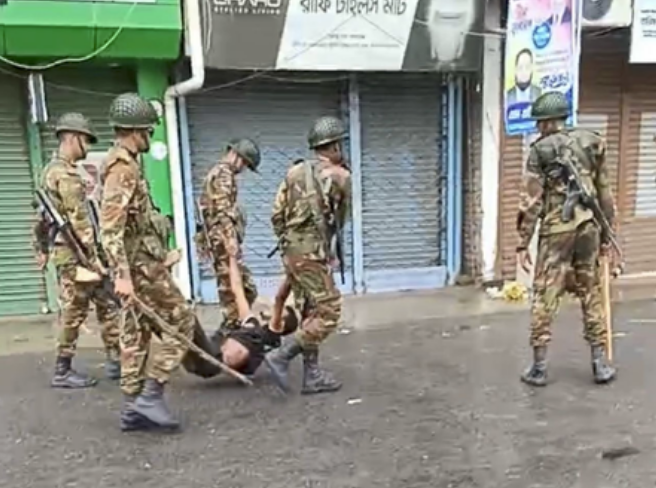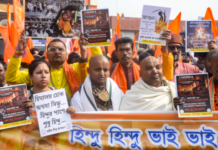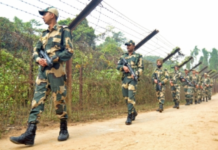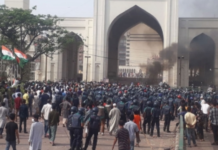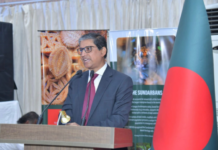DHAKA — Bangladesh’s political landscape has long been marked by passion and turbulence, with violence woven into its history. Since the ousting of Prime Minister Sheikh Hasina in August last year, however, the country has entered a particularly volatile phase. Streets have erupted in chaos, public safety has deteriorated, and the interim government—despite pledging to restore order—seems either unable or unwilling to stop the descent.
With the Awami League outlawed and barred from elections, a power vacuum has opened. Rather than ushering in stability, this void has intensified rivalries among opposition forces once united against the League. Chief among them is the National Citizen’s Party (NCP), a populist movement that sprang from the fervor of last July’s student uprising. Its rapid ascent has further destabilized the political terrain, already fraying under the weight of the League’s lingering grassroots presence.
This fragility was brutally exposed on July 16, during a rally in Gopalganj organized by the NCP as part of its national “March to Build the Country” campaign—an event meant to commemorate the July Uprising’s first anniversary. What began as a show of strength quickly turned deadly when NCP supporters clashed with members of the banned Bangladesh Chhatra League, formerly the Awami League’s student wing. The violence left five dead and over 50 injured, with reports confirming the use of crude explosives. The Awami League may be disbanded on paper, but its legacy clearly endures.
More troubling is the NCP’s own drift toward authoritarianism. A party that once railed against the Awami League’s so-called fascism now mirrors its tactics. The choice to hold a rally in Gopalganj—birthplace of Sheikh Mujibur Rahman, Bangladesh’s founding father—was widely seen as a calculated insult. Critics argue it was an attempt not just to provoke, but to symbolically erase Mujib’s legacy.
In recent months, the NCP has demanded three core reforms: the permanent ban of the Awami League, full prosecution of July Uprising cases, and official adoption of the July Charter as a new national doctrine. Initially, the interim government resisted. The Chief Advisor even said the Awami League could decide for itself whether to contest elections. But following a massive NCP demonstration in Dhaka this May, the Election Commission revoked the League’s registration on May 12 and suspended its political activities pending trial outcomes.
The international backlash was swift. Human rights groups and global observers condemned the move as anti-democratic, warning it undermined pluralism by eliminating Bangladesh’s oldest and most historically significant party.
While the NCP labels the Awami League as fascist, its own rhetoric and actions now echo a different kind of extremism. The campaign to erase Mujibur Rahman’s presence from public life has become systematic—his portraits removed, national holidays in his honor canceled, institutions renamed, textbooks revised, and landmarks demolished. The state has played a quiet but visible role in enabling this erasure.
The 1972 Constitution, born from the Liberation War and built on secular nationalist ideals, is also under attack. Islamist groups allied with the NCP have condemned it as a “Mujibbadi” relic and are pushing for its replacement. This demand strikes at the heart of Bangladesh’s founding values and threatens to unravel its democratic and secular foundations.
Nowhere is this revisionism more apparent than in the destruction of historical sites. In Jamalpur, Mirza Alam Chattar was demolished. In Jessore, the Bangabandhu memorial was replaced with a monument to the July Uprising. These symbolic acts are part of a broader strategy to rewrite the nation’s historical narrative in service of the NCP’s ideology.
Gopalganj, however, remains the epicenter of this campaign. Eyewitnesses report that NCP cadres—some allegedly armed—attacked civilians during the rally, with apparent backing from military personnel tasked with security. The Bangladesh Army’s involvement has sparked fears about its impartiality. The UK-based International Crime Research Foundation has called for a UN-led investigation, describing the incident as a “premeditated assault” on the mausoleum of Sheikh Mujibur Rahman.
The interim government’s silence on the violence has fueled suspicions of complicity. NCP Convenor Nahid Islam has since doubled down, calling Gopalganj a “fascist stronghold” and even claiming that Ziaur Rahman—not Mujib—was Bangladesh’s true founding figure. These statements not only distort history but seek to reshape the collective national memory.
Today’s political violence in Bangladesh is not just about power—it’s about identity. The NCP’s campaign to eliminate the Awami League and Mujib’s legacy threatens the democratic ethos the country fought to establish. Even flawed political parties deserve a place in a functioning democracy. Banning opposition voices is not reform—it is repression.
The tragedy in Gopalganj has revealed an uncomfortable truth: in seeking to end one-party dominance, Bangladesh may be entering a new era of authoritarianism—this time masked by the language of revolution and reform. But silencing history, however flawed, will not lead to true progress.
As the lines blur between victim and aggressor, between fascist and liberator, the country must take a hard look at where it is headed. Only by embracing truth, reconciliation, and pluralism can Bangladesh avoid writing its next chapter in blood. (Source: IANS)


